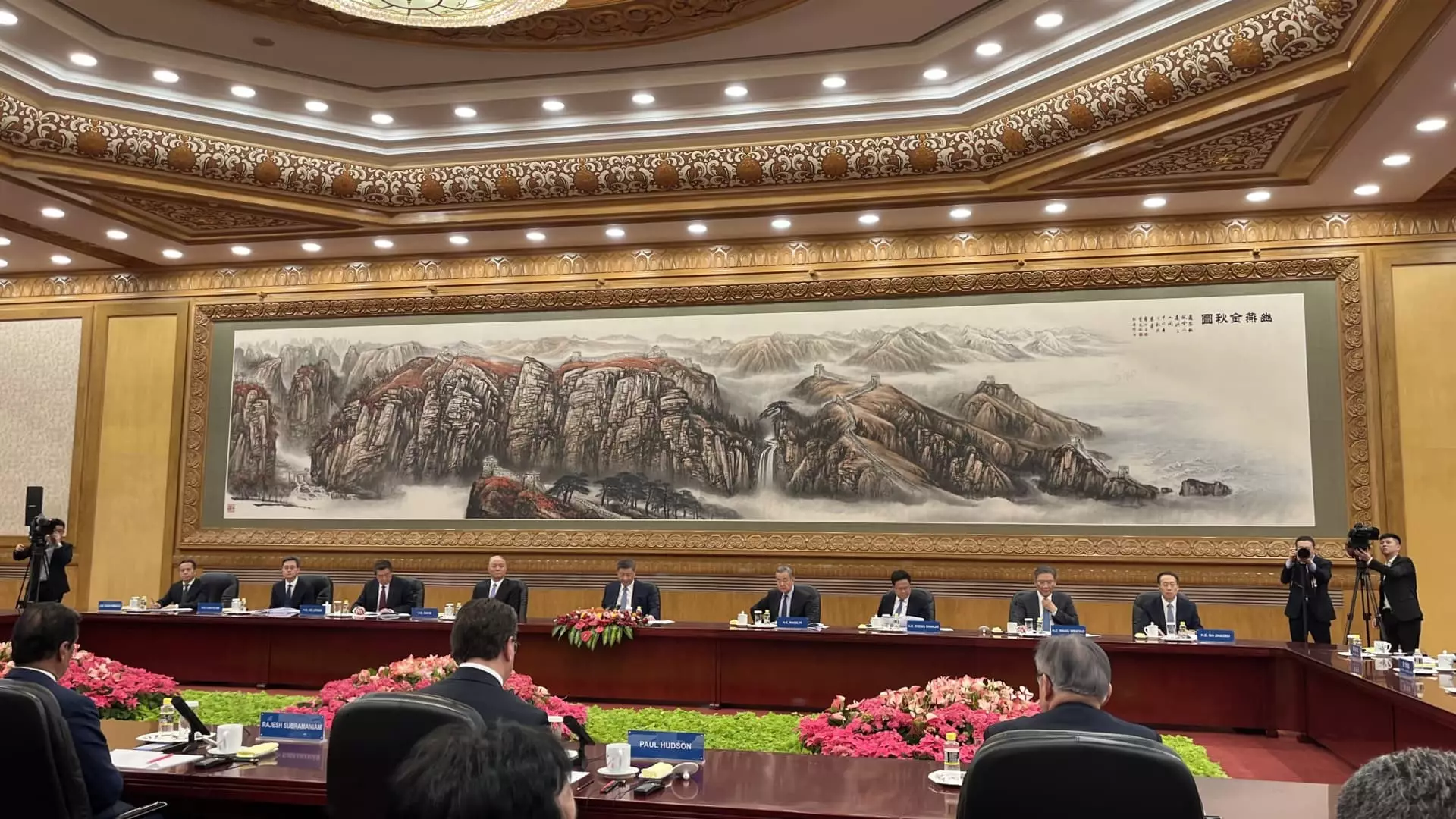In an era marked by increasing trade tensions, particularly between the United States and China, the Chinese leadership remains resolute in courting foreign investments. Recently, President Xi Jinping convened a roundtable discussion with global business executives, emphasizing the importance of multinational corporations in maintaining a stable global order. His rhetoric, laden with optimistic undertones, promotes the narrative that investing in China is akin to investing in a secure and prosperous future. This strategic positioning highlights not only China’s desire for foreign capital but also its acknowledgment of the intertwined fates of global economies in a time of mounting uncertainty.
Investment as a Vehicle for Global Stability
Xi Jinping’s assertion that “to invest in China is to invest in tomorrow” resonates profoundly in the competitive landscape of international business. This statement is not merely a promotional slogan; it reflects an underlying message that Beijing views foreign businesses as pivotal players in steering both China’s economic trajectory and the broader global economy. Xi’s calls for unity—stating that multinational firms must “work hand in hand” with China—underscore a vision of collaborative progress despite the backdrop of rising tariffs and an evolving trade landscape.
The roundtable convened in Beijing saw the attendance of influential figures such as Ray Dalio and Bill Winters, highlighting that these are not mere statements made in isolation. However, it would be remiss not to acknowledge the duality of such interactions. The executives present largely represent companies that have already committed to China, suggesting a level of economic dependency rather than a pure invitation for unprecedented commitments from businesses still on the fence regarding their engagement with the Chinese economy.
Navigating Trade Tensions
In the face of escalating tariffs—exemplified by a 20% hike initiated by the Trump administration—Beijing is utilizing diplomatic channels to advocate for dialogue. Xi’s reiteration that trade tensions should be resolved through negotiation reflects a strategic pivot, acknowledging that escalatory rhetoric has hindered mutual economic interests. Yet, beneath this diplomatic veneer lies the reality of China’s substantive challenges in fostering a mutually beneficial relationship with the U.S.
While Xi projects a vision of stability, the realities faced by foreign investors in China—such as regulatory unpredictability and historical grievances regarding intellectual property—remain significant hurdles. The remark that the U.S.-China trade conflicts require concerted efforts to stabilize global supply chains signals Beijing’s awareness that decoupling is fraught with complex challenges, perhaps also indicating a reluctant acceptance of the current geopolitical climate.
Beijing’s Diplomatic Strategy
China’s approach to courting foreign executives illustrates a nuanced understanding of global business dynamics. By emphasizing fair opportunities for foreign companies, Xi aims to alleviate concerns about favoritism, specifically in the context of government procurement. This narrative is critical as China strives to combat its image as a market uninviting to foreign entities amid increasing mutual suspicions.
Moreover, the participation of high-ranking officials, including members of the Politburo and China’s top diplomat, serves to reinforce the commitment to forging relationships with external business leaders. However, it raises the question of whether the Chinese government’s outreach is merely a temporary façade masking deeper ideological and systemic challenges.
The Path Forward
As the trade relationship between the U.S. and China enters uncharted waters, the dynamics of business interactions are increasingly complex. With the recent visits by Republican Senator Steve Daines and the heightened focus on future diplomatic talks, it’s clear that both nations recognize the necessity of reconciliation, albeit for different reasons and with distinct priorities at stake.
Xi’s push for a cooperative economic environment presents an intriguing opportunity for businesses willing to navigate the complicated waters of Chinese governance and global economics. The heart of this matter lies in whether companies will heed China’s call and invest, or if they will remain cautious, held back by the specter of geopolitical instability.
China stands at a crossroads where its actions will significantly influence global economic conditions—both inviting and challenging foreign investments within its vast market. The question remains: will global executives see China as the beacon of opportunity it claims to be, or will existing uncertainties dampen the prospects for mutual growth? The dialogue is now set; it is up to both sides to define what the next chapter will entail amid these evolving dynamics.

